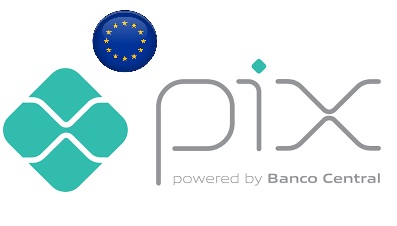Brazilian e-wallet Pix defends European ambitions

The Central Bank of Brazil (BCB) introduced its instant payment system called Pix in November 2020. Already in 2021, it presented the good results of its solution, which has since seen its adoption among Brazilian users increase. Building on its success, Pix is now targeting new targets for its geographical deployment, with Europe as the first destination.
FACTS
- Pix allows instant transfers 24/7 and 7/7, free of charge and safe. The service is now being deployed in Europe thanks to a partnership with Wipay, specialized in digital payment solutions, and PagBrasil, a payment facilitator for Brazilian e-commerce.
- Their joint work is particularly concerned with adapting Pix to the specificities of the European market while maintaining the accessibility and efficiency of the original service. PIx defends above all the immediacy of transactions and an intuitive user interface.
- The first two target countries for the deployment of Pix in Europe are Spain and Portugal.
- The first implementation of Pix will be in the vending machines at Barcelona airport, offering travelers instant and secure payments via QR codes.
- Wipay and PagBrasil then want to extend this technology to other tourist and commercial sites in Europe. PagBrasil expects the total volume of transactions with Pix International to reach US$1.2 billion by 2025.
CHALLENGES
- Leverage local expertise: Pix now relies on Wipay and PagBrasil to leverage their local expertise and drive compliance. The interoperability with existing payment systems remains a major challenge.
- Surfing its success: Pix quickly conquered the Brazilian market by offering a fast, free and secure alternative to traditional payment methods. It now enables more than 164 million Brazilian users to make online and in-store transactions using their mobile phones. In the face of this success, Pix’s expansion into Europe represents a new challenge.
- Focusing on the rise of tourism: Pix is looking to Brazilian tourists in particular to break into Europe. In 2023, there were 564,860 in Spain, with spending reaching 11,687 million euros in May 2024, an increase of 19.7% compared to the previous year.
MARKET PERSPECTIVE
- The Brazilian central bank is choosing a strange timing to deploy its instant payments system in Europe. Indeed, the territory is already marked by significant competition, dominated by international solutions such as PayPal and national instant payment services (like Bizum in Spain for example).
- Above all, Europe is about to implement its payment project based on the rails of instant transfer, European Payments Initiative (EPI) and has just officially launched Wero in Germany.
- This launch comes, however, in a context where open banking and the digitalization of financial services are accelerating, offering Pix an opportunity to deploy. In 2022, the Central Bank of Brazil also made Pix Open Source so that all central banks who wish to copy its communication protocols for free.
